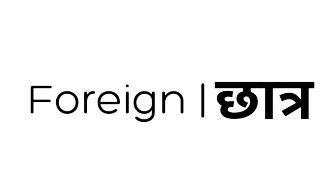Your cart is currently empty!
Study in the Netherlands: A Comprehensive Guide
Overview
The Netherlands, often referred to as Holland, is a popular destination for international students seeking quality education in a vibrant and multicultural environment. Known for its innovative education system, English-taught programs, and picturesque landscapes, the Netherlands has become a top choice for students worldwide. The country boasts a rich history, progressive values, and a strong emphasis on research and development, making it a hub for academic excellence.
International students are attracted to the Netherlands for its world-renowned universities, affordable tuition fees, and a welcoming atmosphere. The Dutch education system encourages critical thinking, collaboration, and practical learning, preparing students for global careers.
Highlights
- Global Recognition: Dutch universities consistently rank among the world’s top institutions.
- English-Taught Programs: Over 2,100 programs are offered in English, covering diverse disciplines.
- Innovative Education: Emphasis on problem-solving, teamwork, and real-world applications.
- Cultural Diversity: The Netherlands is home to people from over 190 nationalities, fostering a multicultural environment.
- Post-Graduation Opportunities: A one-year residence permit (“Orientation Year”) allows graduates to search for jobs.
- Central Location: Situated in the heart of Europe, the Netherlands provides easy access to other European countries.
Top Cities
Amsterdam
As the capital city, Amsterdam is a hub of culture, innovation, and education. Home to prestigious universities such as the University of Amsterdam (UvA) and Vrije Universiteit Amsterdam (VU), the city offers a lively atmosphere with numerous museums, canals, and international communities.
Rotterdam
Known for its modern architecture and bustling port, Rotterdam is an excellent choice for business and engineering students. Erasmus University Rotterdam (EUR) is a leading institution in these fields.
Utrecht
Utrecht is a picturesque city with a rich history and a strong focus on education. Utrecht University is one of the oldest and most esteemed universities in the Netherlands.
Eindhoven
A technology and innovation hotspot, Eindhoven is ideal for students pursuing engineering and technical studies. Eindhoven University of Technology (TU/e) is the city’s key academic institution.
Groningen
Groningen offers a vibrant student life and is home to the University of Groningen, known for its research-intensive programs.
Top Universities
- Delft University of Technology (TU Delft):
- Renowned for engineering and technology programs.
- Ranked among the top 20 globally for engineering disciplines.
- University of Amsterdam (UvA):
- Offers a wide range of programs in humanities, social sciences, and sciences.
- Erasmus University Rotterdam (EUR):
- Known for its business and economics programs.
- Leiden University:
- The oldest university in the Netherlands, famous for law and humanities.
- Wageningen University & Research (WUR):
- World leader in agricultural and environmental sciences.
Application
Eligibility Requirements
- Bachelor’s Programs:
- High school diploma equivalent to the Dutch VWO diploma.
- English language proficiency (IELTS 6.0–7.0 or TOEFL iBT 80–100).
- Master’s Programs:
- Bachelor’s degree in a related field.
- Specific program requirements (e.g., GMAT/GRE scores).
Application Process
- Research Programs: Explore courses and universities that match your interests.
- Check Entry Requirements: Verify academic and language prerequisites.
- Submit Applications:
- Use the “Studielink” platform for most applications.
- Provide required documents, such as transcripts, personal statements, and recommendation letters.
- Pay Application Fees: Typically €50–€100 per application.
- Await Admission Decisions: Universities usually respond within 4–8 weeks.
Pros & Cons
Pros
- High-quality education and globally recognized degrees.
- Affordable tuition fees compared to other European countries.
- Extensive English-taught programs.
- Multicultural society and international student support.
- Excellent public transportation and infrastructure.
Cons
- High cost of living in cities like Amsterdam and Utrecht.
- Weather can be unpredictable, with frequent rain.
- Learning Dutch might be necessary for social integration.
Cost of Living
Monthly Expenses
- Accommodation: €400–€1,200 (depending on location and type).
- Food: €150–€300.
- Transportation: €40–€100 (discounts available for students).
- Miscellaneous: €100–€200.
Tuition Fees
- EU/EEA Students: €2,314 (statutory fee for 2025).
- Non-EU/EEA Students: €6,000–€20,000 (varies by program and university).
Visa
Student Visa Requirements
- Proof of Admission: Acceptance letter from a Dutch university.
- Financial Proof: Show funds covering tuition and living expenses (€12,000–€15,000 per year).
- Health Insurance: Mandatory for all international students.
- MVV Visa: For non-EU/EEA students, a long-stay visa (MVV) is required before entering the Netherlands.
Application Process
- The university often assists with visa applications.
- Processing time: 4–8 weeks.
Life
Student Life
- Social Activities: Join student associations, cultural events, and sports clubs.
- Work Opportunities: Part-time jobs allowed for up to 16 hours per week.
- Travel: Explore neighboring countries using the efficient rail network.
Dutch Culture
- Language: While most people speak English, learning basic Dutch is beneficial.
- Lifestyle: The Dutch are known for their open-mindedness, punctuality, and love for cycling.
FAQs
Q1. Can I study in the Netherlands without knowing Dutch?
- Yes, many programs are taught in English. However, learning Dutch can help with social integration and part-time jobs.
Q2. Are scholarships available for international students?
- Yes, options include the Holland Scholarship, Erasmus+ Program, and university-specific grants.
Q3. What are the working rights for students?
- Non-EU students can work 16 hours per week during the academic year and full-time during holidays.
Q4. How safe is the Netherlands for international students?
- The Netherlands is one of the safest countries in the world, with low crime rates.
Q5. Is public transportation student-friendly?
- Yes, students can access discounts on trains and buses using the OV-chipkaart.
Studying in the Netherlands offers a perfect blend of academic excellence, cultural diversity, and a vibrant lifestyle. With its welcoming atmosphere and world-class education system, it’s an ideal destination for students aspiring to global success.
